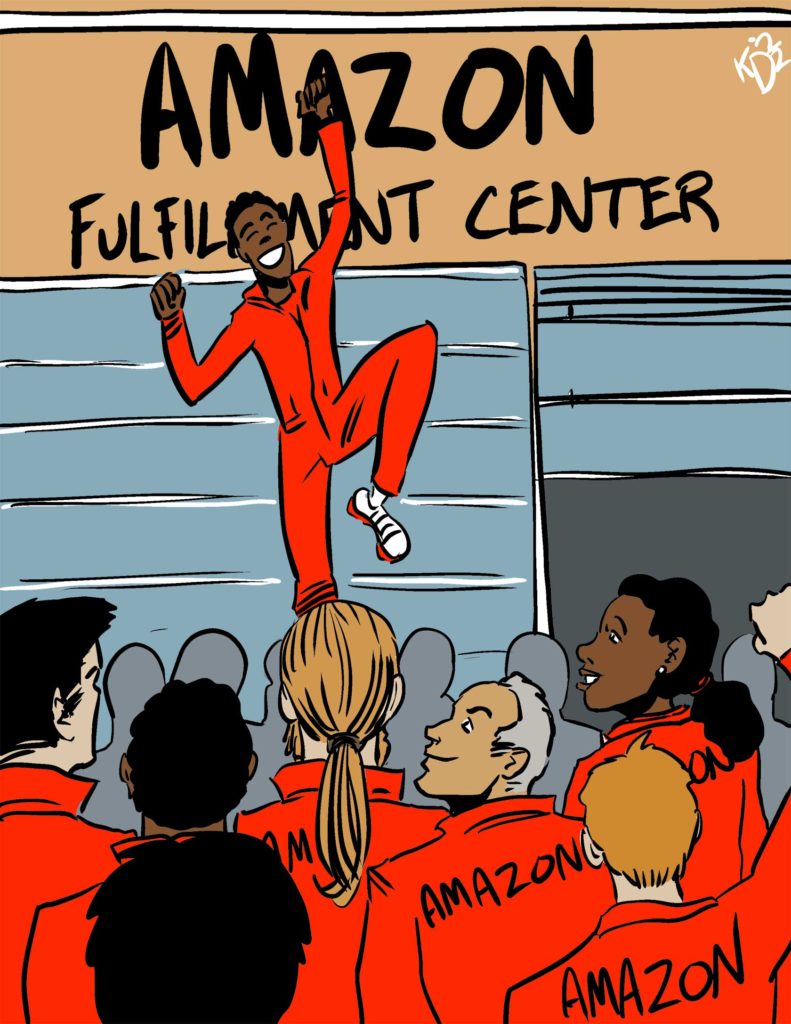
In America, reputedly the land of opportunity, many people are struggling for survival. While there are still many stories about those who rose from poverty to become millionaires, it is increasingly difficult for the average worker even to attain middle-class status. Indeed, Jeff Bezos, the founder of Amazon, became a billionaire of a company that discouraged the development of unions. Some analysts assert that the decline in unionism is at fault.
There is some evidence to support that view. According to Paul Krugman, the economic columnist for the New York Times, in 1973, 24% of private-sector workers were unionized. However, that percentage dropped to only 6% in 2021. Not surprisingly, the salaries of CEOs of major corporations in 1973 were about 23 times that of their workers. That ratio has skyrocketed in 2020 to 351 to 1.
Commentators cite different reasons for the change. Most common is the decline in U.S. manufacturing. When General Motors was the nation’s largest employer, it became a natural target to establish wage levels for manufacturing. However, there was some expectation that wage scales would keep up with the production of labor, but that has not happened.
The industrial barons who established major companies built their financial interest by keeping executive and other workers’ salaries low. But when they retired and sold their businesses, the business school alumni who were educated to be CEOs expected to become affluent. Consequently, the level of executive salaries had to increase because their stock holdings were insufficient to create great wealth from company profits.
The effort to constrain the growth of workers’ pay scales became essential. There was every effort to restrict the growth of workers’ benefits. Efforts by unions to fight back were often defeated or compromised. But now, a group of blue-collar workers at the Amazon Fulfillment Center in Staten Island have approved the formation of a union. There are more than a million Amazon employees in the U.S., and Amazon is the nation’s second-largest private employer.
Consultants are already trying to determine what the Staten Island workers did that was successful where so many anti-union specialists have succeeded in the past. Workers leading the unionization effort appeared to be Black and Latino as well as white. They could potentially modernize the nation’s labor movement.






